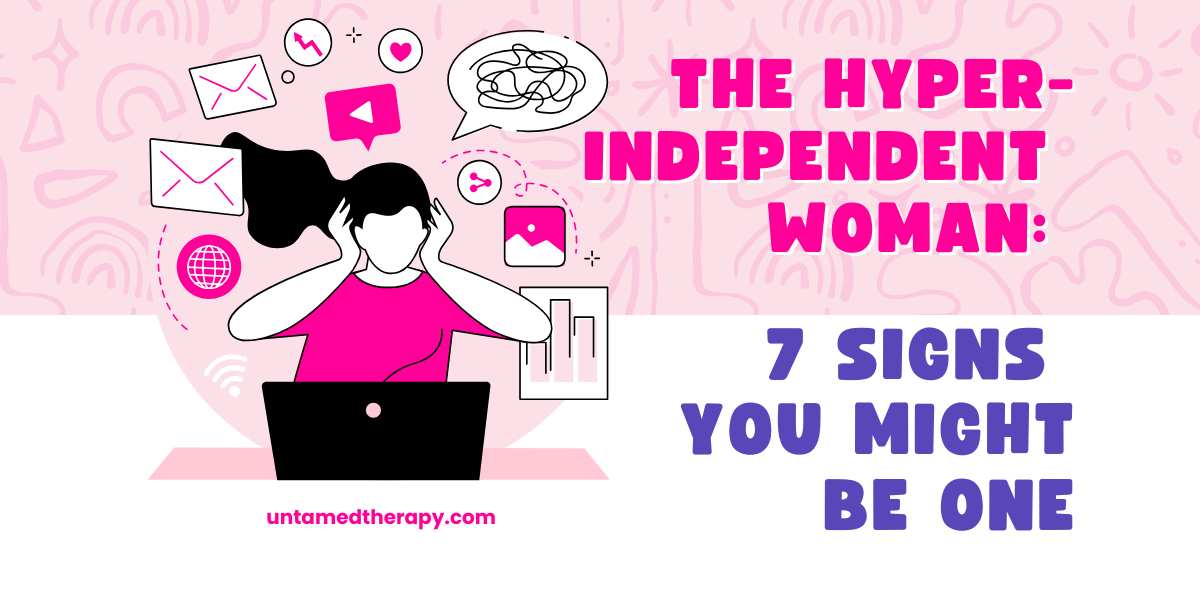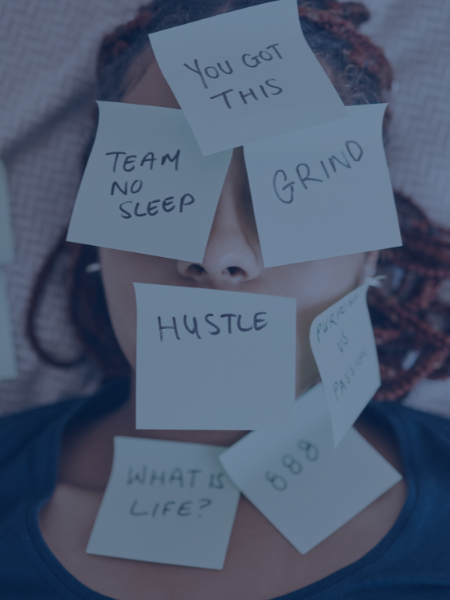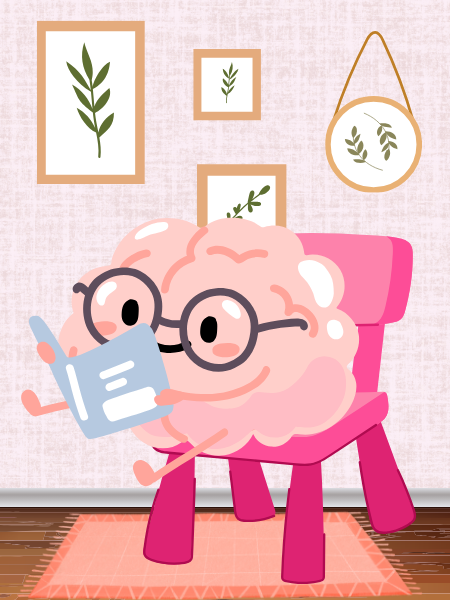
REAL TALK, REAL THERAPY,
REAL GROWTH
WHEN LIFE GETS REAL, YOUR THERAPY SHOULD BE JUST AS RAW—NO FILTERS, JUST HONEST AF HEALING.
Cut through the B.S and get right to the root of what's been holding you back from living your best damn life with EMDR Therapy Intensives!
Jessica Brooks, LMHC
Certified EMDR Therapist
You've read the self-help books, do all the things, even tried therapy, BUT nothing seems to get to the root of what is keeping you stuck in the f*ckery.
You’ve probably heard it a million times — “Wow, you’re so strong! You handle so much!” Cool, thanks — but let’s be so for real: being "the strong one" feels less like a flex and more like a fucking cage.
Even when someone offers help, your autopilot response is, “Nah, I got it.” So the thought of spilling your messy ass tea to a stranger? Feels about as fun as a root canal. But here’s the truth — you deserve a space where you’re not the only one doing all the heavy lifting.
Therapy doesn't have to suck!
Hi, I'm Jessica.
I get that therapy can be scary AF and spilling your guts to a stranger doesn't exactly sound like a blast. If you’ve got a past that’s more chaotic than a dumpster fire, you’re not alone. Many of my clients have been through it—crazy family dynamics, addiction, abuse, emotional neglect, you name it.
-
Past trauma that’s been weighing you down
-
Toxic AF relationships that have left scars
-
The overwhelming stress of daily life
We’ll tackle all that shit—together.

I don’t just rely on textbooks or my clinical training—I’ve been in the client seat, sitting raw and exposed in front of a total stranger, fumbling my way through the healing process. It felt like being naked with my clothes on, vulnerable as hell. BUT—it was worth every ounce of unease, every awkward pause, and every tough conversation.
Break Free from the Bullsh*t
Relationship Wounds & Trauma:
Let me guess, others have had it worse so you’re hesitant to call it “trauma”. Yet, deep down, you know life and relationships have been hard AF, with some unbearable sh*t along the way and you often find yourself dating the same person, different face and reliving WTF moments.
Low Self-Esteem & Imposter Syndrome:
I bet you're an overachiever who's worth has been tied to productivity since you were a kid. Now that straight-A overachiever is a woman pulling 12-hour days for a quick hit of “You’re amazing!” validation while secretly worried "they're going to figure out you're a fraud."
Complex PTSD & Attachment Trauma:
I assume childhood a dumpterfire. You were too busy the "parent" at a yound age intead of being a kid that you learned to survive by trying to control the shitshow. So now you micromanage everything and everyone in a desperate attempt to feel safe from your own emotional clusterfuck.
THERAPIES & PRACTICES TO HELP YOU GET YOUR SH*T TOGETHER
Trauma-informed therapy is the core of my therapy practice. It’s like therapy with a GPS to where all the fuckery lives. It takes into account the messy AF dumper fire of your experience, without the judgment or the pressure to “just get over it” at some subjective pace.
Trauma-informed therapy goes beyond the surface and focuses on understanding how trauma affects every part of your lived experience and influences your current decisions. Think about it this way, a trauma-informed therapist is fluent in the unspoken language of trauma—knowing how to navigate triggers, avoid re-traumatization, and respect your process without pushing you into areas that feel unsafe.
This isn’t therapy with a sprinkle of empathy—it’s a whole-ass process that prioritizes your safety, empowerment, and trust, acknowledging that your reactions aren’t just random AF but rather that they’re rooted in pure survival.
In my trauma-informed therapy practice, I take a direct yet compassionate AF approach. I recognize that trauma isn’t just a memory—it’s something your body and mind still carry, long after the events have passed. It’s not just about what happened to you, but also what didn’t happen—the safety, love, or support you needed but never got. And that kind of unmet need can be just as heavy to carry as the trauma itself.
Trauma shows up in ways you might not even realize—chronic tension, exhaustion, gut issues, difficulty trusting others, looking for an exit no matter where you are or constantly feeling on edge for no clear reason. It’s not just in your thoughts; it’s in the way your body flinches, shuts down or stays in fight-or-flight mode even when you’re “safe.”
That’s why my approach goes beyond just talking about it. Using EMDR reprocessing and EMDR Intensives, somatic awareness, and nervous system regulation techniques, we work on releasing trauma where it’s stored, so you can stop just surviving and finally start feeling safe, present, and in control of your life again. This is how you truly live life on your own damn terms and I'm here for it!!

E.M.D.R
EMDR (Eye Movement Desensitization and Reprocessing) helps you process stuck trauma — the kind that replays in your head like a bad song. Using bilateral stimulation (like eye movements or tapping), we revisit the shitty memories so your brain can reprocess them without the gut punch. In my practice, feeling safe every step of the way is top priority — no fluff, just effective AF trauma healing so you can finally live life on your own damn terms. Learn more HERE

Attachment-Based
Attachment-based approaches are all about understanding the deep-rooted ways your early relationships shaped how you connect (or struggle to connect) with others and yourself today. They dig into the patterns that keep you stuck in unhealthy relationships or feeling disconnected.
We work together to untangle the shitstorm of old wounds and unmet needs, helping you build healthier, more secure attachments and rewrite the script on how you show up for yourself and others unapologetically.

D.B.T
Dialectical Behavior Therapy (DBT) is like the ultimate toolkit for managing the chaos of intense emotions and impulsive behaviors.
It helps you build skills in four key areas: mindfulness, emotional regulation, distress tolerance, and interpersonal effectiveness. Whether you're dealing with overwhelming AF feelings, self-destructive habits, or relationship drama, we’ll work together to develop practical strategies that help you stay grounded, handle tough situations without flipping your shit, and communicate more effectively so you can make the changes you need to kick life in the face.

C.B.T
Cognitive Behavioral Therapy (CBT) is all about flipping the script on those negative thought patterns that have you stuck in life's cycle of bullshit. It helps you identify and challenge the unhelpful beliefs that are dragging you down.
While I personally feel that CBT alone can't heal the deep rooted shit, it does allow us to dig into the connection between your thoughts, feelings, and behaviors. This will help you think in a way that’s more balanced and less self-sabotaging. And that's always a win!
Ready to Dive In?
Super excited you're considering me to ride along side you on this wild AF journey of healing!
At the moment, the only openings I have are for EMDR Therapy Intensives. If you’re ready for deep, focused work and faster results, an intensive might be exactly what you need.
However, if an EMDR Intensive isn’t the right fit for you, I totally get it. You’re more than welcome to join the waitlist for weekly or bi-weekly sessions. Please keep in mind that I can’t guarantee when an opening will become available as I currently have a full caseload.
If you need more immediate support and don’t want to wait, I highly recommend checking out Psychology Today, Headway, and Grow Therapy to find a therapist in your area with availability. You can also check out My Therapists Peeps in SWFL nor can I reach out on your behalf or vouch for their specific therapy process. Finding the right therapist is personal, and I want you to feel confident in your choice—so I encourage you to connect with them directly to see if they’re the right fit for you.
Finding the right fit takes time, but you deserve support, so don’t hesitate to explore your options.
If you’re looking for a way to start healing now, an EMDR Therapy Intensive could be the best option to fast-track your progress while you explore other therapy options. So you can walk away with stronger self-compassion, healthier relationships, and the ability to break toxic patterns like a pro. You’ll finally feel seen, validated, and unapologetically YOU.
If you’re still interested in joining my waitlist, sign up below.
You deserve support—don’t hesitate to explore your options!




